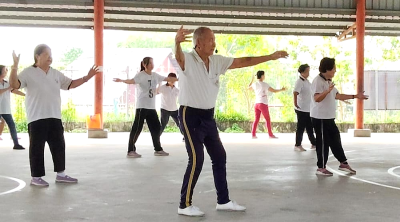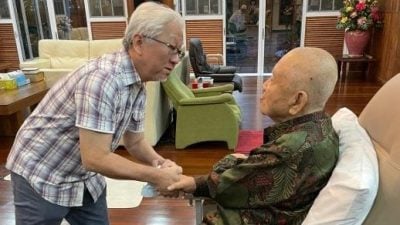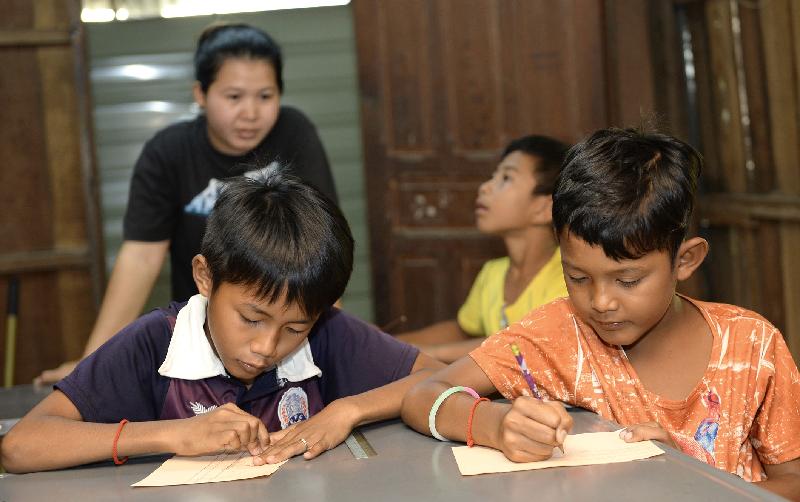
Walking into the shantytown, Cheryl Loo was surrounded by kids.
The shantytown is formed along Phnom Penh's circular railway track. Phnom Penh Post reported that there are almost 500 shantytowns housing more than 140,000 impoverished people all across the city.
Three years ago, Cheryl Loo came to Cambodia with a Malaysian church organization to serve as a volunteer in this country. Having been here several times, she made up her mind to stay back in Cambodia to serve the homeless people in the streets of Phnom Penh and teach their kids.
A year later, at the recommendation of a friend living in one of those slums, she decided to dedicate herself to serving the people of Khan Toul Kouk slum north of the city, setting up a learning center ro educate the impoverished children there.
"These children all come from low-income families that do not have stable jobs. They make a living by collecting plastic and scrap metal or peddling river snails on a push cart to earn the very meager daily incomes."
In addition to teaching the children, Loo also conducts house visits. For the past two years, she has witnessed countless of illicit activities going on in the slum areas, many happening in broad day light.
"This particular area is notorious for drugs and you will see drug deals going on even in the day."
"No one is trying to cover up anything. Everybody feels that this couldn't have been more commonplace and acceptable. They sometimes even send the kids to make the deals because minors will not get jailed. How sad!"
Young "independent adults"
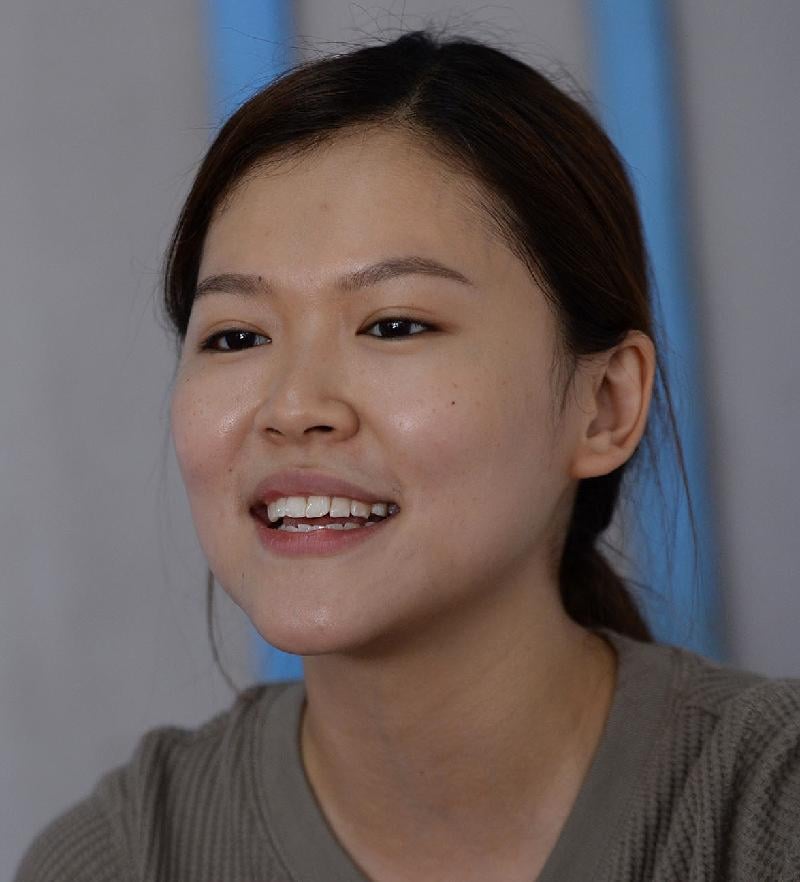
The railway track along which slum houses have mushroomed is only a stone's throw from Loo's learning center. The students only need a short five-minute walk to come here to learn.
Loo said these children all behave like "independent adults" who want to make their own arrangements in everything. The parents can't and won't bother to control them. As such, it is useless to talk to parents to send their children to the learning center.
"We have to deal directly with the kids."
The down-to-earth learning center is housed in a rented shop with a very simple partition for the classroom fitted with several chairs and desks and a white board.
"They are somehow still kids but they lack discipline in life. No one has told them what is right or wrong.
"They have this attitude that they have to constantly protect themselves. This is how they grow up. They need to act aggressively.
"Indeed, they lack family care and love and their parents are not by their sides when they need them most."
Loo said without proper education, she was afraid these children might take the wrong turn in their growing process. But then will these kids attend a school?
"Many of them do not have birth certificates and are not able to go to a regular school. Alternatively, they can come from very poor families and their parents want them to stay home to take care of their younger siblings.
"Sometimes they simply don't want to go to school."
3,500 NGOs
Loo's learning center now has 30 students who learn subjects like English, mathematics, arts, moral education and hygiene concepts. She said she was trying to provide the most fundamental knowledge to these students, believing that education is the key to deliver themselves out of abject poverty.
"We grew up very differently in Malaysia. Since young we were taught to save, be punctual and honor our promises. These concepts are total strangers to the kids here.
"We need to teach them from square one. This takes a lot of effort."
This learning center was Loo's personal idea and was set up with the funds raised through the church and friends in Malaysia.
She is also planning to set up an NGO in the future.
"Even if I may eventually go back to Malaysia, this project will continue."
Talking about setting up an NGO, she said excitedly, "There are plenty of them in Cambodia!"
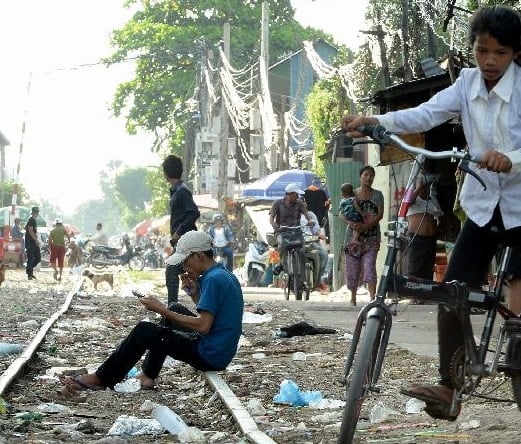
Many NGOs came to Cambodia when the country was opening up to the outside world in 1992, setting up offices and service teams in the capital city.
According to a survey by the Cooperation Committee for Cambodia, there are as many as 3,500 NGOs in the country. The Diplomats magazine has reported that Cambodia has the world's second highest density of NGOs by population, after Rwanda.
Unfortunately, many of these NGOs have come and gone without engaging the local societies.
Loo said, "Take this slum for instance, many NGOs have visited this place. They came, did something, and then left. The next foreign NGO will do the same thing, come here, do something good for the people, and leave."
Slowly the local residents no longer have any expectation from voluntary organizations, knowing that they will leave some day.
The thing is, when the NGOs leave, they do not take with them the local people's attitude of dependence.
"They have become excessively dependent on assistance, thinking that they do not need to work hard or learn to feed themselves. They just need to ask from those foreigners."
Wrong approach
Loo feels that such offerings have hurt the local people's dignity and made them lose their ability to help themselves.
For example, when foreigners see the dilapidated houses in Cambodia, they will pick up the brush and help them paint the houses.
"These people may feel why they couldn't take care of their own houses themselves and need the help of outsiders? They will feel useless as they can't take care of their own families and need outsiders to take care of them."
Loo admitted that she herself also acted like a "superwoman" when she offered assistance to people in distress initially, without looking into ways to address their source problems, as this kind of service relationship would create endless vicious cycle.
"If they don't change their way of thinking, they will not learn to appreciate kindness.
"When they see foreigners coming in, they will hold out their hands to ask for money. This has become customary. Foreigners are seen as generous givers, Santa Clauses.
"It's good for NGOs to come in and help, but they should improve their ways of delivery."
As a Christian, Cheryl Loo believes that we cannot lose our love and faith even in utter despair and poverty. She believes there is no short cut to helping to deliver people from poverty except dedicated effort to guide them not to overly dependent on other people in order to change their lives.
"We must not assume that their lives will be improved after we give them these material gifts."
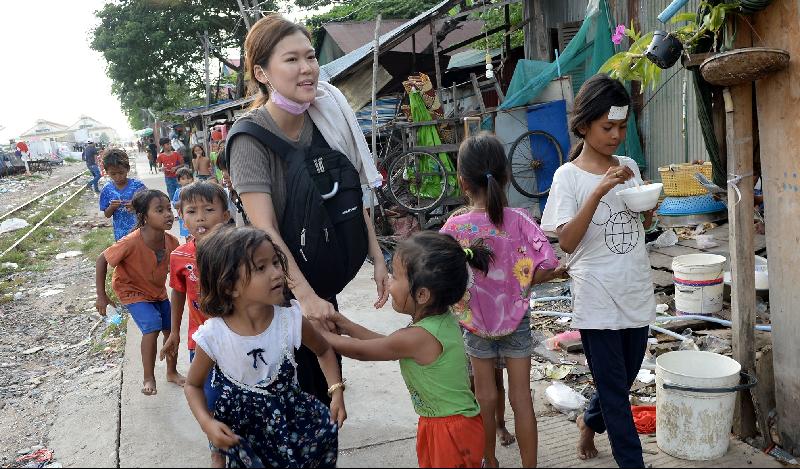
ADVERTISEMENT
ADVERTISEMENT








